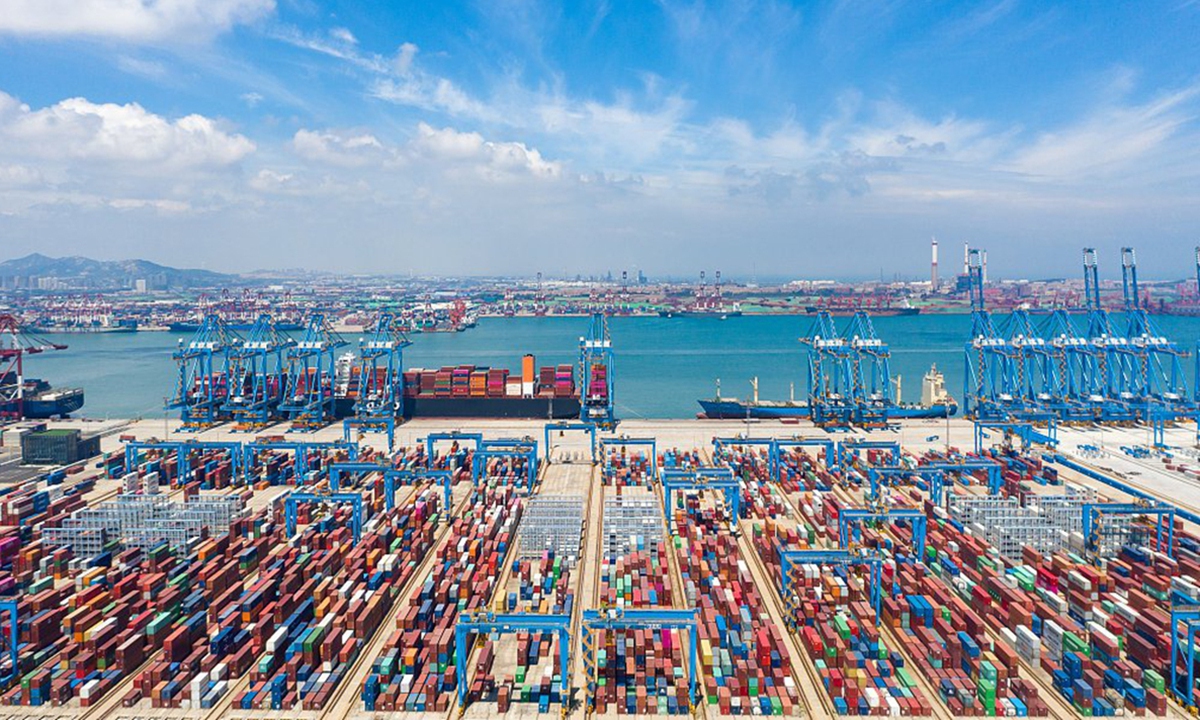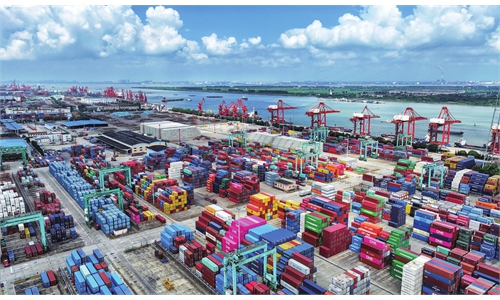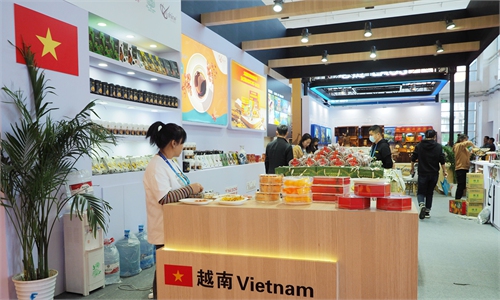
China trade economy File photo: VCG
China's State Council, the cabinet, on Monday announced measures to accelerate the integrated development of domestic and foreign trade, as policymakers try to tackle challenges facing the country's foreign trade and shore up economic growth.
According to a circular issued by the General Office of the State Council, 18 measures in five areas were revealed - promoting the alignment of domestic and foreign trade rules and regulations; facilitating the connection of the domestic and foreign trade markets; optimizing the development environment for integrated domestic and foreign trade; accelerating the integration and development of key areas of domestic and foreign trade, and increasing fiscal and financial support.
China will increase support and relief efforts for enterprises affected by unreasonable foreign trade restrictions, and support their integrated operations of domestic and foreign trade.
At a time when China's export sector faces a challenging external environment and some companies face shrinking domestic demand, the State Council's circular about the integrated development of foreign and domestic trade actually points out the general direction of how to deal with the current economic pressure, in terms of expanding domestic demand, exploring export markets, stabilizing enterprises and eliminating the barriers for enterprises to explore the domestic and international markets.
For decades, China's foreign trade has been an important driver of its economic growth. But the situation has changed a bit. While China's trade value may be still a big number, there is no denying that it is now under great pressure, as represented by declining exports to the US, the EU and other developed markets.
In addition to sluggish demand amid an economic slowdown in the West, a major cause of the export change is that the US and its Western allies have imposed sanctions on Chinese companies and promoted "decoupling and breaking chains" in the global economy and trade in an attempt to curb the development of China's foreign trade.
For instance, the US Department of Homeland Security last week announced plans to add three companies to a list of firms sanctioned under the "Uyghur Forced Labor Prevention Act" (UFLPA). Following the announcement, the UFLPA entity list totals 30 companies.
Incomplete statistics show that so far, the US has already placed over 1,000 Chinese enterprises on various sanction lists, such as the Entity List and the Unverified List, according to media reports. These sanctions have had a serious impact on the exports of these enterprises and are among the challenges facing the Chinese economy.
Against this backdrop, there is growing awareness that unlike global cyclical factors, the current structural trade challenges faced by China cannot be effectively addressed through macroeconomic fiscal or monetary stimulus. Under US and other Western trade policies of containing and encircling China, local authorities in China need to adopt targeted measures based on their own structural problems and local conditions, according to a recent trade policy report released by the Research Team for International Finance and Economics under the National Institute of Financial Research of Tsinghua University.
Foreign trade still plays an important role in China's economic development, especially for regions that rely heavily on foreign trade. At this juncture, government support is crucial for domestic companies to identify their future directions.
The State Council's circular is actually aimed at helping enterprises explore new markets and ensuring China's foreign trade remains an engine of economic growth, through measures such as financial support and connection of market channels.
China's overall trade foundation remains sound, as the competiveness of Chinese export goods is strong despite geopolitical factors. The current trade structural challenges don't change China's position as the world's largest trading nation. With targeted policy direction and sufficient support, Chinese enterprises can still expand their global networks despite suppression by the US.



